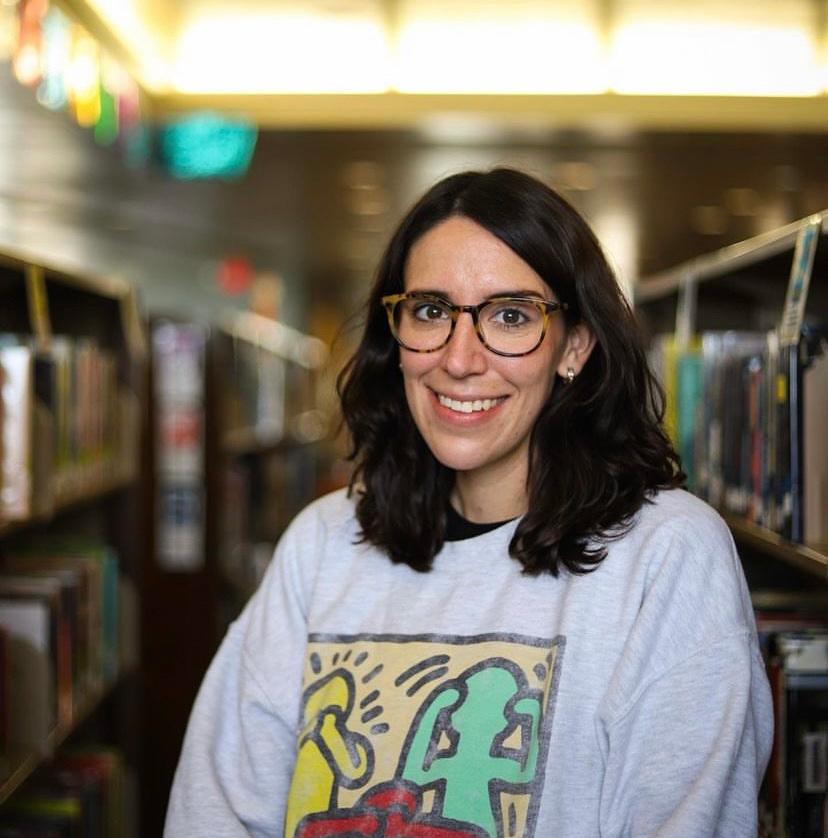
7 minute read
Setting Up High School Students for Success in College and Beyond
By Jessica Silva
Editor’s note: These interviews were conducted for TLA’s Libraries Transform Texas podcast, you can listen to the full episode here: https://spotifyanchor-web.app.link/e/A7GxTtpnTyb
AS A HIGH SCHOOL LIBRARIAN, I WANTED TO HEAR FROM COLLEGE AND UNIVERSITY LIBRARIANS ABOUT HOW BEST TO PREPARE STUDENTS FOR COLLEGE. Thank you to Lorely Ambriz, El Paso Community College; David Baca, Texas A&M University–Galveston; Jackie Chetzron, Dallas ISD; Bryant Moore, Texas A&M–San Antonio and Jennifer Ottinger, Texas Woman’s University for answering these questions:
• What are three key things students should know for college?
• How can librarians help students prepare for secondary education?
• What database or research skills are most important?
One thing many of the interviews touched on, is the importance of being able to tell the difference between information and misinformation and becoming comfortable with using the library as a resource during college. I’ll let our experts take it from here:
Lorely Ambriz, Head Librarian and Assistant Professor, El Paso Community College
Students need to understand how to use and reuse information. They need to understand they can build on previous discoveries and understand the use of information. As much as they love Google they can find information from many other sources! Having a good understanding of what they’re looking for, finding relevant information and how to use it. It’s important for them to learn with hands-on training. How to use online databases (is a skill they need to learn). (It’s helpful) when the instructor lists: I want two print books, two electronic journals, and encourages them to use different sources. (Librarians) can help them identify the different formats. Just introducing them to that vocabulary to understand different sources: academic, peer-reviewed journals, for example. We’re also incorporating pictures, audio and video, how to cite the sources for those is important. I always tell students, it’s not how many results you find, it’s how relevant they are to what you’re looking for. It’s one of the goals of the ACRL framework – to understand how information is produced and organized. How databases and search engines work. How to build a search properly. Sometimes students are overwhelmed by the amount of information they find, that’s why librarians are important. We can help them organize their information and their writing. Help them be more analytical of what they are seeing, to think about sources before they share information.

Lorely Ambriz
Dr. David Baca, Director, Williams Library, Texas A&M Galveston

David Baca
Aiming this at students – engagement is one of the issues that we see. The students that come in that aren’t successful, who are struggling, they are really not engaged. They don’t talk to their advisors or their faculty about what the challenges are, they tend not to join student organizations or social groups. They need to know they can get help. Colleges have a lot of support systems, advising, writing and research help, tutors, mental health professionals and librarians, they can ask any of them and they can put them in touch with a person that can help them. Also – it seems like a simple thing – for students to make a calendar. Put all their assignments in it, planning where they need to be to prepare for each assignment, schedule tutoring or research conversations with librarians. It seems like a small thing but it’s a huge thing - especially that first semester of college.
Find a student organization that matches their interests. Meet people. Even if they’re an introvert they need to make connections. Being successful is all about making connections. High school librarians can bring in college librarians that are in their area (to have them talk about their university).
A lot of students don’t know what a database is, the difference between trade and scholarly articles, you can direct them to Google Scholar, that’s a good starting point. Learning terminology in their field of study. Any library – public or school or academic – they are the most helpful places on earth. Introduce yourself to a librarian when you get to campus; we are here to help you be successful! Go to any informational sessions they have when you’re a freshman, the skills that you start learning then are going to be skills you use for the rest of your life.
Dr. Jackie Chetzron, Librarian, Anne Frank Elementary School, Dallas ISD

Jackie Chetzron
One of the things kids really need to be able to do is develop their search terms. Getting away from asking their phones a question. Be able to switch out terms, be able to narrow or broaden their searches. Teach them how to use databases and how to use search terms. Ask librarians for help.
There’s a need to not only determine the quality of information but what sources work for what they’re looking for. Be able to pull out the information that they need.
We really focus on those databases, we want to see them used. They do develop citation skills. But they don’t meet the information needed for every request. They need to break down these skills into chunks: using the right search terms.
Jennifer Ottinger, Special Collections Librarian, Texas Woman’s University

Jennifer Ottinger
Students need to learn to use the catalog, databases, working through different resources, how to use them in academic libraries. Librarians are here to not just to help them check out a book, we are here to walk them through every step of the research process. Find out who your subject librarian is, for individual classes that you’re in and for your major. We can show you resources specific to that subject. We can help make sure that you are using the right citation and there are different research avenues to go down. We are here for you. We will make your entire college career easier and less stressful. Reach out to us and we’ll help you every step of the way.
Bryant Moore, Texas A&M University – San Antonio, First Year Experience Librarian

Bryant Moore
I’ve been in this role for almost seven years. A lot of our incoming freshman classes – we saw there was a need for a first year experience librarian. I work with our incoming freshmen. We call the course “First Year Seminar.” As part of those classes, there is an information literacy component.
In that course, we cover a lot. One of the things we cover is they have a research project. They want to be introduced to the library. I cover the research process, narrowing down the topic, selecting a topic. I focus on the research question: what do you want to learn about? They are graded on an annotated bibliography; they use APA citations.
Maybe 65 to 70 percent already know how to do a bibliography. It depends a lot on where they went to high school. That’s something high school librarians can help with.
Our new director has a term, “library anxiety.” We have been focusing on that. The librarians are here to help you, we know the library can be overwhelming. With me, I try to do gaming, some type of interactive game in my library sessions. We try to do different activities. Our library does an outreach called “Lemonade and Snacks.” We pass out lemonade and Little Debbie snacks to encourage students to visit and get to know the library.
There’s a lot to offer in college libraries, it’s not just about books. We are here to help you.








